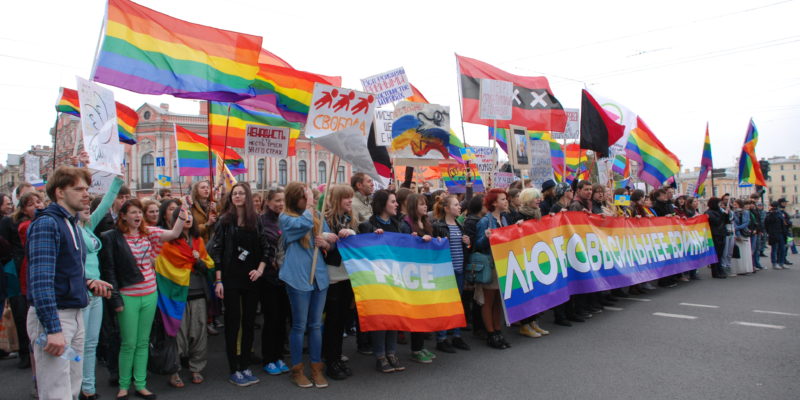There are “wars” within the war that do not make headlines and do not make it to the front pages of newspapers. This is the case for the women who are raped by invading soldiers, of the sick who no longer have the right to, or access to treatment, and of minorities who, even in conditions of peace, fight a daily battle, but in wartime find themselves battling exclusion, marginalisation and discrimination alongside the atrocities of the war.
We have observed this in other wars and sadly this scenario is occurring also in the current conflict that has engulfed Ukraine and its people. As the news regarding migrants, non-Ukrainian citizens, especially those coming from Africa or the Middle East blocked at the borders keeps arriving, so does news of transgender people who are not only not allowed to leave the country, but who are violated for establishing their identity.
These are the wars within the war, the stories of people who would be invisible if the power of many online information channels (social networks, chat functions etc.) did not exist which, in these cases, have overcome borders, bombs and censorship to give a voice to those who otherwise would not have one.
The atrocities facing transgender people in the Russian-Ukrainian conflict has reached us and Arcigay has intercepted the cry for help and immediately mobilised, networking with other Italian and European LGBTI+ associations (especially in the Balkan area and neighbouring countries) to try to find solutions both on a diplomatic and a practical level to the situation currently facing trans people (particularly MtoF transgender people). In fact, martial laws prevent any male person from leaving the country – laws which see as irrelevant scenarios where biological sex have not matched gender identity. Although in Ukraine there is a legal process for recognising one’s status as a trans person, even this is not enough to allow one to leave the country if one has not embarked on a path of sex reassignment. In short, at the borders there is no need to show any document certifying one’s elective identity, even if it is a legal identity – what matters is the genital organs one carries.
There are several stories of people who have contacted European LGBTI + associations for help, trans women who have been touched and rejected at the border even when in possession of the necessary documentation in Ukraine to evidence their transition. As victims of abuse and abuses of power, Ukrainian trans people ask for help from the rest of Europe, while the rest of the Ukrainian LGBTI+ community is committed to the frontline to defend their country, their democracy and the freedom of LGBTI+ people. If it is true that only with the election of Zelensky the situation for LGBTI+ people in Ukraine seems to have improved, it is equally true that prejudices and social stigma, especially in times of war, are rising again.
In addition to having opened a dialogue with other LGBTI+ associations to create a network of welcome and support for all LGBTI + people from war zones, Arcigay provides beds in some shelters that it manages on the national territory (Udine, Rome, Naples, Reggio Emilia) and makes these available to all branches of the Migranet Network which, from north to south, already provide support to asylum seekers and refugees from other forgotten wars. The first requests for housing have already arrived and are destined to increase if the conflict is not resolved soon.
Arcigay is also mobilising at political and diplomatic levels, trying to put pressure on the Ukrainian government to guarantee trans people the right to leave the country safely and without suffering physical and psychological abuse, especially for all those who have the documentation that evidences their transition path.
The network created with European associations, especially with those of countries that are on the escape route from Ukraine, is essential not only to provide support and hospitality, but also to guarantee protection. In fact, it is known that countries such as Poland and Hungary have explicitly anti-LGBTI positions also at the institutional level. But the same thing applies to other neighbouring countries such as Moldova and Romania, where the conditions of LGBTI+ people are not simple, social condemnation is still very strong and the activism of the LGBTI + community very weak.
Slovenia and Italy, together with other countries of the Balkan area, play a fundamental role: the networks we must continue to build will need to be robust to respond to a second wave of migration in which the number of LGBTI + people seeking refuge is likely to grow.
Cover photo via Wikipedia.









